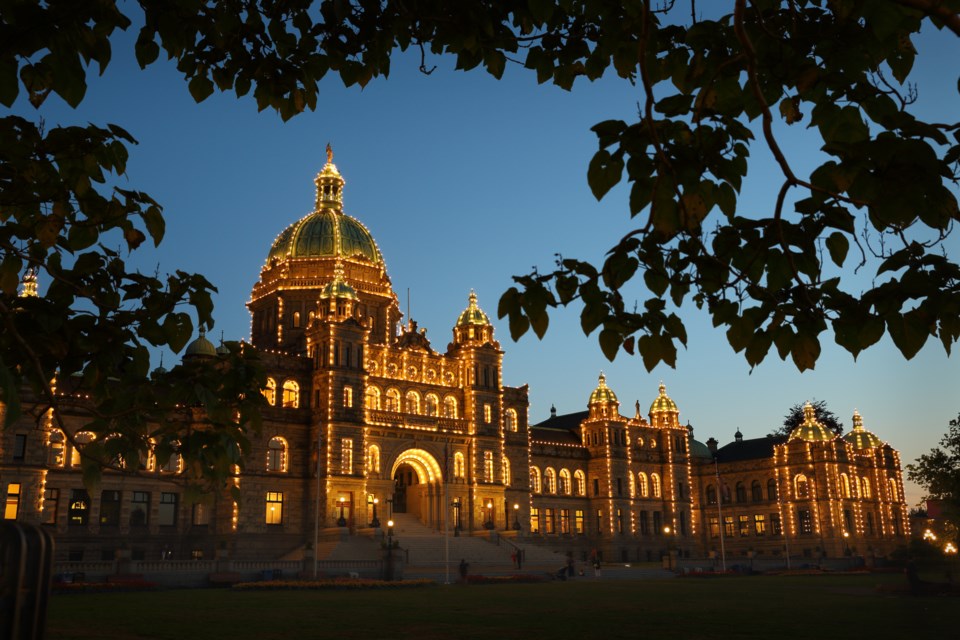A physically distanced B.C. legislature opened Monday to the announcement that the BC NDP government will seek to extend emergency orders for up to a year.
“Given the possibility of a second wave of COVID-19, the [COVID-19 Related Measures Act] will also provide the possibility for extension of COVID-19 related orders by up to one year after the act is brought into force, if required,” stated a news release from the office of Attorney General David Eby
Otherwise, all ministerial orders made by the solicitor general under the Emergency Program Act (EPA) end immediately at the conclusion of the provincial state of emergency.
Ministerial orders have given the B.C. government and other authorities more sweeping powers during the pandemic response. These include, but are not limited to, greater powers for bylaw officers, price gouging enforcement, limitations on evictions, protections for businesses and groups against liability for COVID-19, allowing local governments to meet online, and allowing certain legal processes (wills and strata meetings) to be conducted digitally.
“Currently, all ministerial orders made by the solicitor general under the Emergency Program Act (EPA) end immediately at the conclusion of the provincial state of emergency. Specific orders already made will be extended in the legislation after the end of the state of emergency by 45 or 90 days” with the possibility of being extended for a year, with consent from the Lieutenant Governor, stated Eby in a the news release and in the House Monday.
The news release stated: “Separately, the act allows for the creation of regulations that provide protections from civil liability. For example, emergency orders to protect essential service providers, such as child care operators, and amateur sport organizations from liability, where they operate responsibly and in accordance with public health orders and guidelines, are already in place to respond to concerns from those sectors.”
Eby also introduced legislation to permanently enable courts to accept electronic wills and to permit the remote witnessing of wills.
"This modernization initiative was underway before the pandemic, but COVID-19 has made the reasons for these changes obvious to all British Columbians," said Eby.
Meanwhile, the Ministry of Energy, Mines and Petroleum Resources introduced legislation to create a new “chief permitting officer” position, distinct from the chief inspector of mines.
The chief permitting officer will ensure the mine permitting process is efficient and effective. The chief inspector will retain responsibility for health, safety and enforcement, according to a government statement Monday, which added:
“The legislation will further strengthen government's ability to hold mines accountable. These changes include strengthening investigation authorities, clarifying offence provisions and increasing the limitation period from three to five years in both the Mines Act and the Environmental Management Act.
“The proposed changes will also formalize the creation of the Mine Audits and Effectiveness Unit, led by a chief auditor. This unit will conduct audits to ensure mining regulation in B.C. is effective and aligned with global best practices.
“The proposed changes were informed by lessons learned from the Mount Polley disaster, recommendations from the Office of the Auditor General and the Mining Jobs Task Force, consultation with stakeholders and input received during the 2019 public comment period on the proposed changes to the Mines Act.”



